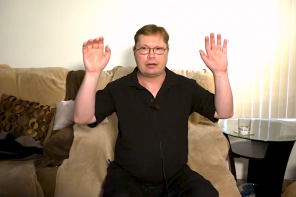Although Eido Shimano Roshi will no longer be teaching under the auspices of the Zen Studies Society (as covered in RD recently), the effect of the scandal that led to his forced retirement is rippling throughout the larger community of American Buddhism.
At issue, as in any case of clergy abuse, is the question of authority. In the case of the Catholic Church, it is easy to see how power plays out, whether it is temporal or spiritual. But many Americans looking for eastern enlightenment have hit up against a cultural confusion that makes discernment almost impossible.
Over at Sweeping Zen, Erik Storlie has written a strong critique of the unexamined aspects of the east-west teacher-student relationship, while lamenting this “old and discouraging story.”
In forty-six years of Zen practice I’ve observed Asian (and now Western) swamis, tulkus, roshis, rishis, dharma heirs, lineage holders, and masters of various stripes, as well as their disciples, explain that the master’s fiscal extravagance, alcoholism, cruelty, sex addiction, violence, and even rape is – of all things – “a teaching!”
[…]This is a Mad Hatter’s tea party, where hierarchical robes and titles, sadomasochistic austerities, and subterranean libertinism mix together in incestuous “spiritual communities” filled with distrust and rivalries – all this in a scramble for the summit of some distant “spiritual” mountain. This would be comic if it weren’t tragic.
Storlie goes on to dispute the legitimacy of the idea of “dharma transmission,” the idea that spiritual power has passed, “mind to mind” in an unbroken chain from the time of the Buddha. He likens it to Catholicism’s apostolic succession, insisting that it bears the same dangers, and says that “Zen must undergo its own painful Protestant Reformation” if it is going to truly thrive.




